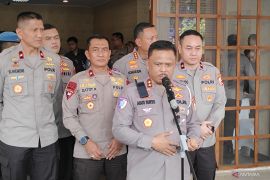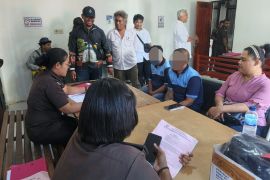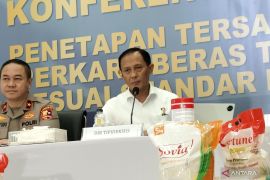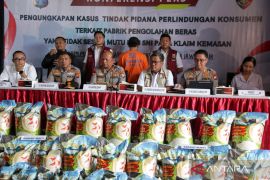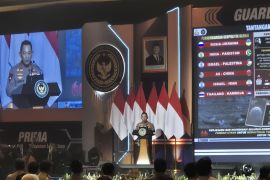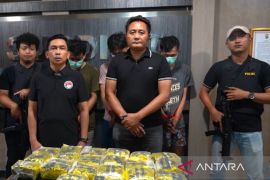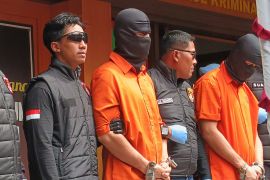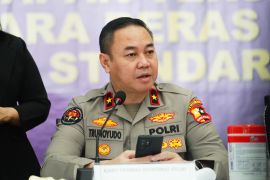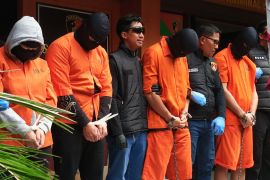"After studying the Sarinah attack in Jakarta and some terrors in Medan, Bandung, and Falatehan, the police had found that most of the radical groups had used Telegram to maintain communication among their members," Karnavian said.Jakarta (ANTARA News) - National Police Chief General Tito Karnavian has supported the ban imposed by the Ministry of Information on the messenger application Telegram, because the app had supported extremists who committed several attacks in Indonesia.
"After studying the Sarinah attack in Jakarta and some terrors in Medan, Bandung, and Falatehan, the police had found that most of the radical groups had used Telegram to maintain communication among their members," Karnavian stated in Jakarta.
The police chief explained that the application provided several features, including an encrypted message which was difficult to be tapped by the officers.
"Due to its privacy policy, the police officers struggled to detect the attacks, which had sporadically occurred in the country," he added.
Apart from its encryption feature, according to the chief earlier on Sunday, the app had been more preferable compared to others apps such as Whatsapp or Line, because it could gather about 10 thousand members in a single group.
"The groups ran their operations through the app by not only maintaining communication but also spreading the radical doctrines," Karnavian remarked, while adding that the police intelligences probe had helped the ministry to analyze the app long before the ban.
"Some pros and cons on the ban were normal. However, in term of the national security, people would be safer now," the chief stated.
Following the ban, the police would strengthen the supervision in the internet, while imposing the law if some violations were found.
However, to disguise as one of the members was tricky because the groups had special codes to avoid security officers.
According to the police chief, two radical groups, including the structured and the unstructured, now were flourishing in the country.
"For the former group, the intelligence found no difficulties in mapping their operational and structural details," he pointed out.
However for the latter, some militants launched a self-radicalization program without any guidance from the leaders.
The unstructured model had started to develop in several western countries since the last 10 years.
"The (autopilot) militants then used the social media to share tutorials; for example, on how to produce bombs. Therefore, the ban was the governments first step to cut the communication access among militants while protecting others who were susceptible to the radical doctrines," Karnavian added.
Information and Communication Ministry on Saturday imposed a ban on the messenger application Telegram because it was reportedly linked to some terrorist activities.
"We have some 500 pages document which proves that the app had been used to spread bomb-making tutorials, hate speech toward the police, and many more," Information Ministry Rudiantara stated in the Presidential Boeing 737-400 Aircraft on Saturday.
The measure had been consulted and approved earlier by two agencies, including the State Intelligence Agency (BIN) and the National Counter-Terrorism Agency (BNPT), the minister remarked.
"We are not arbitrarily taking down some sites and applications," Rudiantara noted.
Following the ban, the ministry called the apps administrator to create a standard operating procedure (SOP) on detecting as well as halting the radical contents.
"If the operator could comply with our request, we would cancel the ban after reviewing the apps SOP," he remarked. (*)
Editor: Heru Purwanto
Copyright © ANTARA 2017
